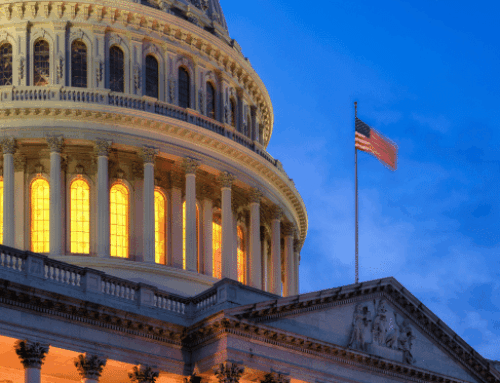This week at Taxpayers for Common Sense we are taking advantage of the slow pace of Washington while Congress is out of town to do a big, periodic house cleaning. We're sorting through files and tossing what we don't need, digitizing what is still useful, and making room for more people by getting rid of extra filing cabinets and outdated equipment. It's annoying, laborious work but a lot of good comes out of it – a cleaner office to be sure, but also a better understanding of what we've done and what we are doing among all staff, not just the ones who remember filing the 20 copies of Army Corps of Engineers documents or all of the earmark request letters from FY 2011.
One thing that I keep thinking about while I sort through files is how much I wish Congress would go through a similar process periodically – cleaning out legislative deadwood, making sure that information is available for review, and making decisions about how to move forward.
The annual appropriations process provides a perfect schedule for reviewing what programs produce real bang for our buck and what line items just seem to keep showing up because they represent the favorite spending of a particularly powerful lobby. What we need from Congress is not just a more thoughtful, orderly process that weeds out the good from the bad, and the obsolete from the necessary, but more ongoing oversight to inform the annual process. It's hard to tell what programs are the best and what are the worst if you never take the time to really look at results.
On broader policy questions that don't come up annually like appropriations the same principles apply. Since the last major tax reform in 1986, the tax code has been cluttered with tax breaks and expenditures some put in “temporarily” year after year and now there is wide consensus that the code is complicated and full of redundancies. As I've said before, it's great that Senate Finance Committee Chairman Max Baucus D-Mont.and Ranking Member Orrin Hatch, R-Utah, have said they'll start reform with a blank slate: it would be even better if they'd let discussion happen out in the open instead of keeping Senator's requests secret for 50 years.
Or looking at the non-discretionary budget. It's clear that in the coming years we have to do something to put Medicare and Social Security on more sound fiscal footing and delaying isn't going to make it any easier. Or how about getting rid of the Soviet-style permanent farm law from the 1940s that's only purpose is to scare Congress into passing ever more wasteful farm bills every five years.
And finally, it's worth noting that there is a lot more Congress can do to give Americans confidence in the decisions they make, starting with improving transparency. We need more and better information about congressional trips abroad, for example, and more timely and detailed information about how lawmakers interact with lobbyists. And perhaps the best and maybe easiest opportunity for Congress to improve transparency would be to make all reports by the Congressional Research Service available on a sortable, searchable website. This is an amazing entity that provides high quality, objective research based on Congressional requests. Unfortunately, the public only sees those reports when a Member of Congress decides to disclose a report. We all pay for this amazing research, and we should all be able to access all the research in an easy and accessible way.
The most important reason to improve transparency is to allow voters to understand the decisions that Congress makes (and fails to make), but it would have the added benefit of making future file cleaning efforts (for lots of office in Washington DC) a whole lot faster and easier.
Let's hope that Congress comes back to Washington after August recess ready for the laborious, sometimes annoying work of doing oversight, passing bills, and actually making the decisions we need to make to move forward as a country.








